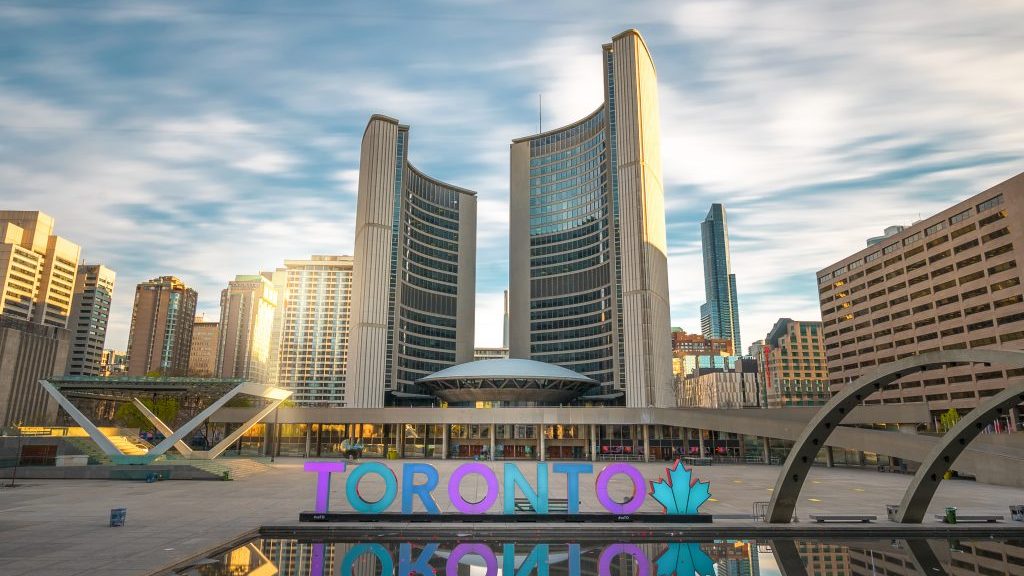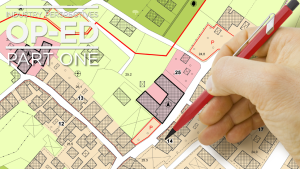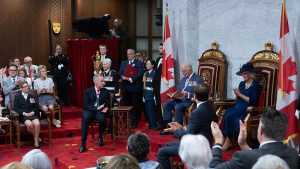John Tory’s final budget as Toronto mayor includes boosts to several housing programs, a 10-year capital plan of $49.26 billion and a spike in State of Good Repair spending.
Immediately after the 2023 budget was approved by Toronto City Council on Feb. 15, Tory indicated he will not exercise his veto power as permitted under new Strong Mayors legislation. He then submitted his formal resignation from the mayor’s office effective Feb. 17, fulfilling a pledge he made Feb. 10 when he disclosed he had an “inappropriate relationship” with a former staffer.
Ratepayers will face a 5.5-per-cent residential property tax rate increase, a three-per-cent rate increase for water, wastewater and solid waste and a 10-cent TTC fare increase. The budget continues to include a 15-per-cent property tax rate reduction for more than 29,000 small businesses across Toronto.
Among project highlights, the city will spend more than $140 million on the central waterfront including two replacement ferries, shore-side electrical infrastructure at the Jack Layton Ferry Terminal, Rees Street Park and Love Park development, completion of the East Bayfront and Lower Yonge Community Recreation Centres, and High Lake Effect Flooding and Windstorm shoreline infrastructure rehabilitation projects.
The budget includes a 1.5-per-cent increase to the City Building Levy, representing an additional $50 for the average assessed value of a Toronto home. The dedicated levy supports $6.1 billion in transit and housing spending in the 10-Year Capital Plan.
The 2023 budget secures more than $2 billion for housing including:
- implementation and legalization of multi-tenant housing through $3.5 million in new funding,
- $7.08 million in spending on the Eviction Prevention Intervention in the Community program;
- $18.85 million in funding for the Multi-Unit Residential Acquisition program;
- $146 million for operation of the City’s Housing Secretariat; and
- mitigation of the impacts of the COVID-19 pandemic on Toronto Community Housing Corporation through a $10.8-million top-up to a subsidy of $295.8 million.
The 10-year capital budget of $49.26 billion includes the $1.05-billion capital plan for Solid Waste Management Services and the $15.34-billion capital plan for Toronto Water.
A hike of $1.2 billion in infrastructure spending on mobility projects includes boosts to the transit fleet, capacity enlargement of Lines 1 and 2, an extension of Broadview Avenue and a four-year bike-sharing program.
New flood protection spending of $700,000 will pay for enhancements for Broadview and Rockcliffe.
Other new infrastructure spending of $2.1 billion will be allotted to Quayside, new water and wastewater installations, new library construction and expansion and a boost to technology infrastructure.
An amendment from Coun. Gary Crawford that was approved included an addition to the Exhibition Place 2023-2032 Capital Budget and Plan of $6.84 million in 2023 to proceed with concept development, feasibility studies and preliminary design and preparation for upgrades to be made to BMO Field.
The 10-year capital plan also includes $24.7 billion to be spent on State of Good Repair (SOGR), an increase of 49 per cent. This includes more for transit upgrades, Toronto Community Housing repairs, fleet replacements and water and wastewater projects.
Despite the added investments in SOGR, the backlog is expected to grow from $9.5 billion in 2023 to $18.8 billion in 2032. The greatest impacts will be in transit, transportation, recreation and city buildings.
To address the problem, the city has pledged to “conduct a review of remaining SOGR challenges and return with a strategy and opportunities to increase SOGR investments and reduce the expected backlog for the 2024 budget process.”











Recent Comments
comments for this post are closed